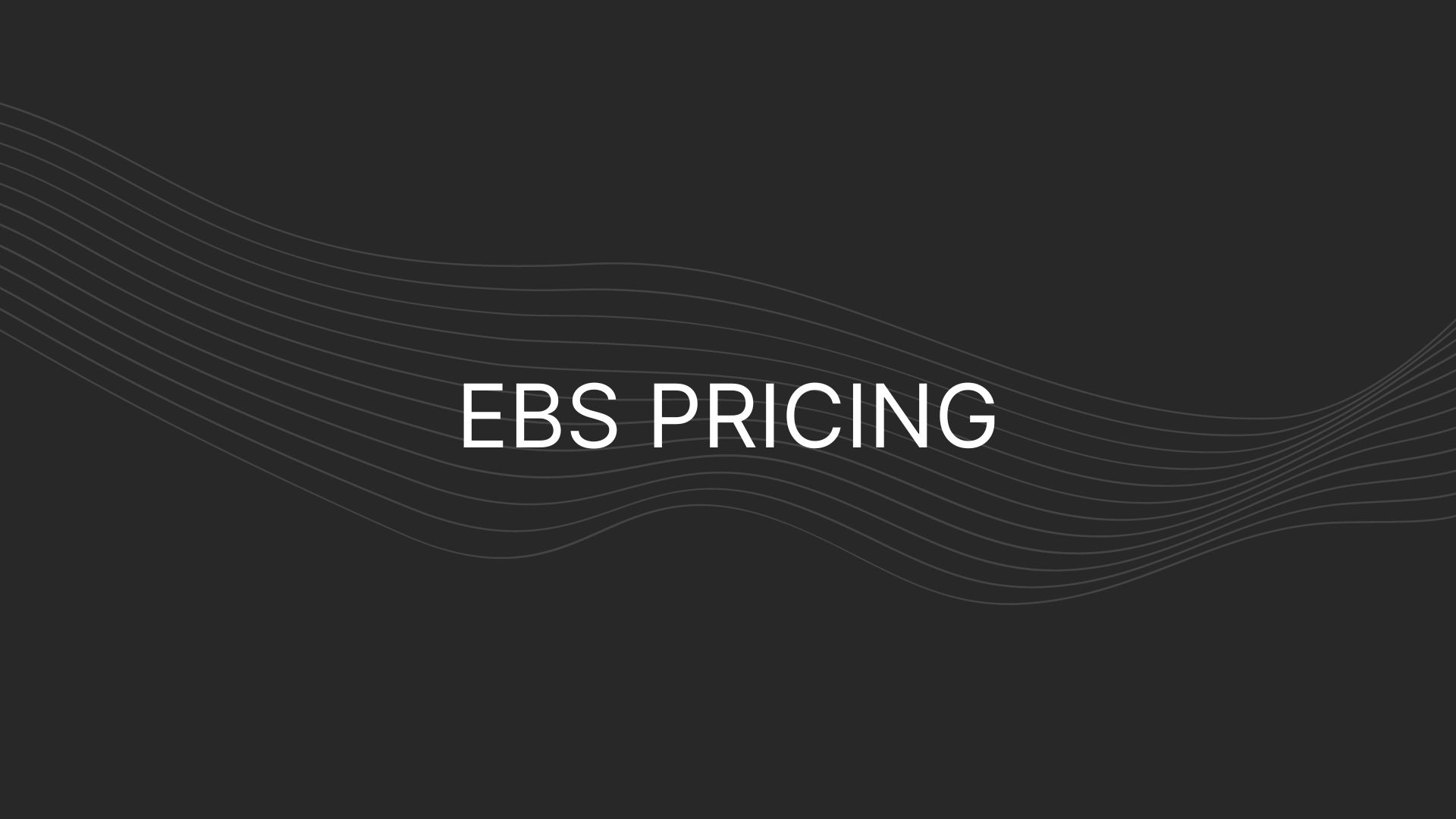Find out more about AWS EBS’s pricing plans. EBS is a tool that makes it possible to store disk data in Elastic Compute Cloud (EC2) instances.
What is EBS?
Amazon Elastic Block Storage (EBS) provides high-performance block storage that is easy to use and works with Amazon Elastic Compute Cloud (EC2). Changing volume types, tuning performance, increasing volume size dynamically, and modifying IOPS capacity in production environments are possible without disrupting the critical applications running there. It is possible to attach more than one EBS volume to one instance if all resources are located in the same Availability Zone. It is also possible to mount a volume to multiple instances at the same time with Multi-Attach.
Amazon Elastic Block Storage Overview
EBS Pricing
You only pay for the resources you consume with AWS EBS. You are charged per GB of volume storage until you release the storage for all EBS volume types. EBS volumes with additional input/output operations per second (IOPS) and throughput exceeding baseline performance incur higher costs. The costs associated with EBS pricing can be divided into three categories:
- Baseline costs
- Costs associated with high-performance volumes, and
- Costs for snapshots
Users can start with the free tier that includes 30 GB of storage, 1 GB of snapshot storage, and 2 million I/Os, with EBS.
EBS Pricing Plans
The EBS pricing model is one of the most complicated aspects of the service. There is a lot to consider, and it is sometimes difficult to predict what your bill will be at the end of the month. As far as EBS volume types are concerned, there are two main categories:
- For General Purpose (gp2 and gp3)
- For High Performance (io1, io2, and io2 Block Express)
- The other types of EBS volumes have not been included due to their specificity (like st1 and sc1 are classic magnetic HDD).
There are always changes in AWS prices, and EBS volume types are no exception, so you should refer to the EBS pricing page for the most up-to-date pricing. For a general overview of applicable charges across different volume types, please refer to the following table:
EBS Enterprise Pricing
The high-performance price is comparable to a premium SSD disk in that it offers greater performance but at a higher cost. This service is recommended for workloads that require low latency, high throughput, or mission-critical operations. In the Eastern US, for a 100 GB io1 disk with 3,000 IOPS, the EBS pricing would be $207 USD per month. The cost is the same as for an io2 disk.
EBS Product Comparison
As mentioned above, EBS pricing depends on a few factors:
- The type of volume and the size of the storage.
- Provisioned throughput.
- IOPS that have been provisioned.
- Size of the total snapshot.
- Fast Snapshot Restore (FSR).
- APIs for snapshots directly from EBS.
There are costs associated with various volume types. For performance and throughput, AWS offers free tiers.
How Much Does EBS Cost?
Data volumes can be selected based on the user’s data load with EBS’s dynamic and cost-effective pricing. EBS’s pricing only charges us for what you use.
- General-purpose SSDs (gp2) cost $0.1 per GB month of provisioned storage.
- EBS Provisioned IOPS SSD (io1) cost $0.125 per GB-month of provisioned storage. Provisioned IOPS are $0.065 per month.
- EBS Throughput Optimized HDD(st1) cost $0.045 per GB-month of provisioned storage.
- EBS Cold HDD (sc1) cost $0.025 per GB-month of provisioned storage.
If EBS Pricing is Too High, Check Out These EBS Alternatives
Listed below are some of EBS’s main competitors:
- DigitalOcean Droplets is a simple, affordable, fast virtual machine that can run any workload, from mission-critical apps to low-traffic sites, instantly and on demand.
- NetApp Cloud Volumes ONTAP provides up to 2TB of underlying storage, making it the best choice for small applications and deployments.
- Google Cloud Persistent Disk is a scalable, reliable, and high-performance block storage for virtual machines.
.


